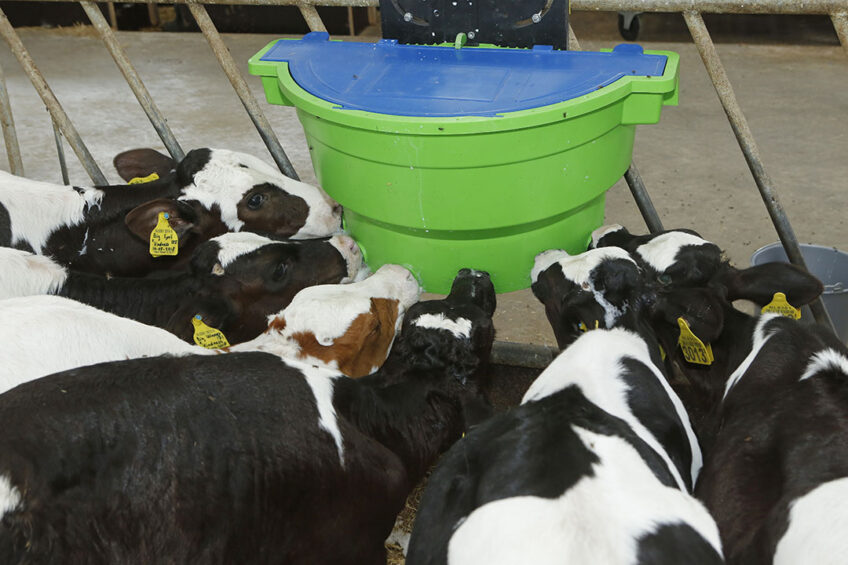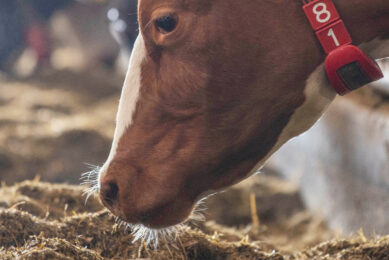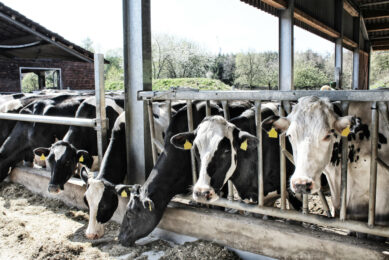Give newborn calves enough extra water

Water is an essential nutrient for livestock animals and it is recommended that free drinking water is offered right after the calf is born. Supplying water right from the start can have a positive effect on milk intake and growth, new US research shows.
Despite the fact that water is such an essential nutrient, water requirements of livestock are often overlooked compared with the requirements of other nutrients. And this is often the case in dairy calves. Considering that water contributes to about 80% of the bodyweight of newborn Holstein heifer calves and the fact that the body water content dramatically decreases as calves grow and deposit more fat, displacing body water, you can imagine that water intake is very important. Moreover, neonatal calves lose a great volume of water due to diarrhoea, which is seemingly inevitable in many dairy operations. Body water losses further increase during warm weather.

Farmers are hesitant to supply water
Calves meet their water requirement via free drinking water (hereafter called drinking water), moisture from feed, and metabolic water. Whereas mature cows receive most water via drinking water, most calves receive the majority of their water via milk or milk replacer. Therefore, the drinking water requirement of calves appears to be insignificant when separated from liquid feed intake. The USDA’s National Animal Health Monitoring System study in 2014 (USDA, 2016) demonstrated that dairy producers wait for, on average, 17 days to first offer drinking water to newborn calves. Producers also seem to be hesitant to offer water to newborn calves, assuming it would cause diarrhoea. Overall, there seems to be a lack of scientific evidence on drinking water intake of newborn calves and its effect on their performance. In addition, the majority of producers seem to assume that neonatal calves receive adequate amounts of water from milk or milk replacer to fulfil the total water requirement of the body. A research team from Iowa State University in the US therefore looked at this topic in more detail.
30 calves in the study
A study was set up to determine the free water intake (FWI) of newborn calves, and to investigate the effect of first offering drinking water from birth versus 17 days later on milk and starter intake, growth performance, health status, and nutrient digestibility in dairy heifer calves fed ad libitum amounts of liquid feed. For the study, 30 Holstein heifer calves, balanced for parity of the dam, birth weight, and birth week, were randomly assigned (15 per group) to treatment group W0 (access to water from day 0) or W17 (access to water from day 17). Calves were bottle-fed with pasteurised whole milk 3 times per day (2.0 kg/feeding until d 14, and 3.2 kg/feeding thereafter). Calves were partially weaned at 42 days of age and completely weaned at 49 days of age. Some parameters were measured daily, such as drinking water intake and starter and milk intake. Things like body weight and hip height were measured weekly. Blood and faeces samples were also analysed for this study.
Effect on body weight
It was shown that when offered from birth, newborn calves consumed 0.75 ± 0.05 kg/d water aside from the water they received from ad libitum milk allowance during the first 16 days. Once offered, W17 calves drank more water (59%) than W0 calves during the preweaning period. Starter intake of W0 and W17 calves was similar, but W0 calves consumed 0.285 kg/d more milk and tended to achieve greater body weight and heart girth compared with W17 calves during the preweaning period (Table 1). The differences in bodyweight became more pronounced toward the end of the preweaning period. Average daily gain was not significantly different between W0 and W17 but W0 calves had numerically greater ADG than W17 calves during the preweaning period. Offering water from birth versus offering it later did not affect the number of days with diarrhoea, intensity of diarrhoea, or blood hematocrit and haptoglobin concentrations of preweaned calves. Despite a similar starter intake, W0 calves had greater hip height, body length, apparent total-tract digestibility of acid detergent fibre and neutral detergent fibre, and feed efficiency than W17 calves postweaning (50 to 70 d of age).

Positive effect on rumen development
Based on these findings, the researchers therefore conclude that provision of drinking water immediately after birth could improve growth and development of calves pre- and postweaning, potentially by stimulating rumen development, thus increasing nutrient availability. Unlike milk, which is shunted directly to the abomasum via the esophageal groove, drinking water is capable of entering the rumen and becoming an integral part of its development.
This article is a summary of the original paper: Drinking water intake of newborn dairy calves and its effects on feed intake, growth performance, health status, and nutrient digestibility, published in the January edition of Journal of Dairy Science.
Join 13,000+ subscribers
Subscribe to our newsletter to stay updated about all the need-to-know content in the dairy sector, two times a week.










